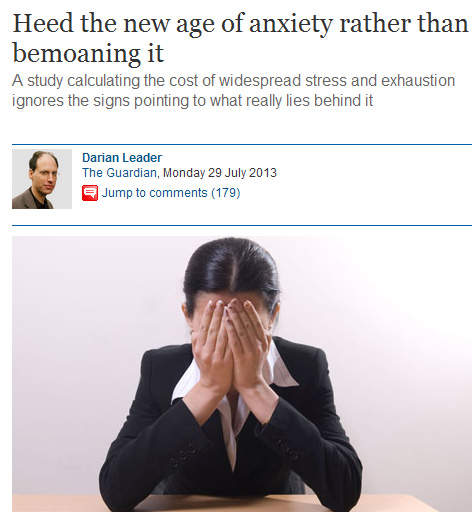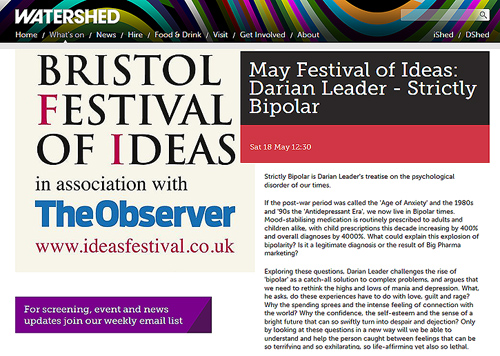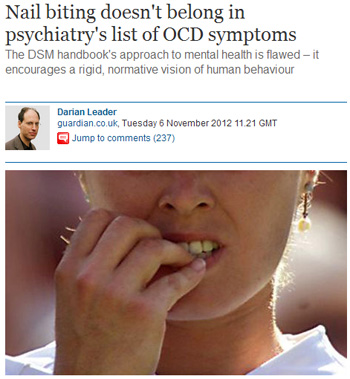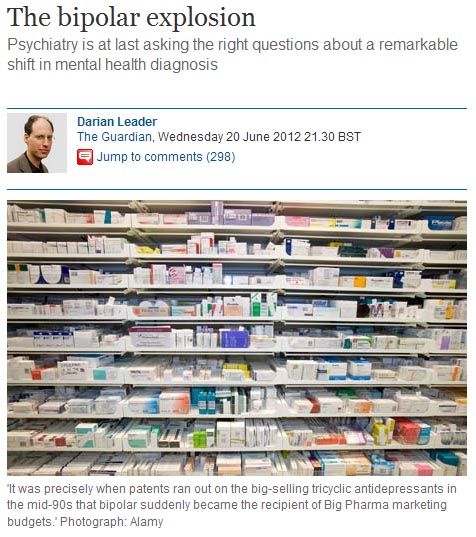Interview with Psychoanalyst Eric Laurent
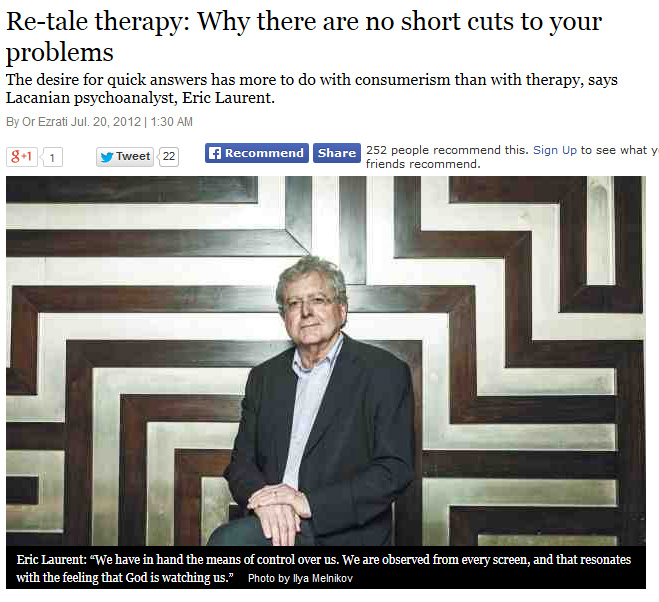 Click here to read the whole of the article on the Haaretz website.
Click here to read the whole of the article on the Haaretz website.
Q: What actually gets lost when someone takes his symptoms to a cognitive psychologist?
Laurent: “I can tell you where I do not agree with my colleagues from the ethical viewpoint. I am opposed to the behavioral aspect that exists in the usual combination of cognitive-behavioral therapy. The patient is liable to find himself in a confrontation with a powerful authority who tries to impose a behavioral change with a ‘one size fits all’ approach. As though good behavior exists that can be standardized. That is not only harmful to the subject, it is genuinely dangerous to the ideals of freedom. In 1971, at the height of the behaviorist ‘craze,’ Skinner [B.F. Skinner, the father of behaviorism] told Time magazine that freedom is a luxury we can’t afford.
